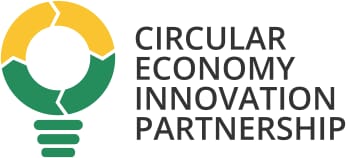
Where Is Africa Headed?
Africa is shining like a diamond and nurturing its young talent will bring the continent into its next phase.
In an ode to her beloved, Rihanna, the priestess of song, quips “we’re beautiful like diamonds in the sky.” With its youthful population, energy, and optimism, so too is the African continent shining “bright like a diamond.”
The analogy of a diamond goes further: diamonds are multi-faceted, reflecting light in many directions. I don’t think there is a better way to appreciate the African continent than as a diamond: culturally rich, complex, multi-national, multi-lingual, with elaborate institutions and forms of governance and a shape, that however the light hits it, can go in many directions.
Talent development is one example. The current median age of the population in Nigeria is less than 18 years old. In Lagos, the youthful energy, reflected in the creative sectors and in entrepreneurship, is unparalleled. However, the largest number of out-of-school children in the world is also in Nigeria, and the impact, in terms of inequality and the scarcity of technical skills, is deeply felt. The latent potential, unmatched by adequate investment in that potential can go in multiple directions.
One direction is innovation in skills development, led by technology and the drive of young people to create opportunities. Thanks to platforms like Coursera and EdX, young professionals are in a much better position to take advantage of learning opportunities that might otherwise be inaccessible. Even within the context of my own team, online learning platforms have proven to be essential in terms of making talent development affordable for emerging and resource-constrained organizations. For example, after co-creating a capacity framework and selecting relevant online programs to build their talent, my colleagues have found they are often eligible for scholarships to formally register for prestigious online university courses. The low set-up costs of talent pipeline development are great news for Africa’s young organizations and this points to a future of promising business development and opportunity.
Innovation in the design and delivery of education is widespread. Gaps in traditional educational services in Nigeria have facilitated the development of novel programs driven by the private sector, and this is very likely to continue. Already, this is particularly evident in the tech sector where companies like Andela pair skills development with industry placement but can also be found in areas such as entrepreneurship training, which is most notable for its diversity of design and delivery models. These changes are significant for the future and should be watched closely: we have a lot to learn from the wide array of education models that are now being deployed. The way they accelerate skills and talent development in Africa helps us rethink how to reshape education, and thus the future, not just on the continent but globally.
Africa as a laboratory for innovation is one direction that the metaphorical light may reflect. Another direction is less optimistic. Inequality in many African countries is both high and persistent. Stories of innovation and entrepreneurship are more likely to emerge from cities and regional centers, but even within urban areas, there is low trust in institutions and poor co-relation between academic and professional achievement. This has led to an exodus of educated professionals, known in Nigeria as japa. If Africa continues along this path, the future does not seem as bright.
But here Rihanna’s ballad holds another lesson: shining “bright like a diamond” depends upon the strength and support of relationships. A concerted effort to nurture constructive relationships will develop meaningful opportunities for young talent and that talent is what will carry Africa into its next phase. Likewise recognizing and addressing deep structural challenges that constrain how young people are able to access and capitalize on educational opportunity will make all the difference in how the light is reflected.
Article Source: https://www.ie.edu/insights/ideas-to-shape-the-future/idea/where-is-africa-headed/



